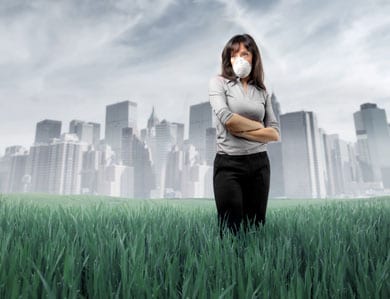 Have you ever jokingly said that a beautiful dress or gorgeous pair of skinny jeans was “to die for”? Apparently, that statement isn’t far from the truth.
Have you ever jokingly said that a beautiful dress or gorgeous pair of skinny jeans was “to die for”? Apparently, that statement isn’t far from the truth.
Earlier this year, an apparel factory in Bangladesh collapsed, killing almost 1,300 workers and seriously injuring countless others. This factory was responsible for producing “fast fashion” clothing, featured in stores such as H&M and Zara. The lure of fast fashion is being able to buy trendy, attractive clothes at a fraction of the price of high-end stores.
However, with the question of worker safety and labor conditions rising so drastically to the forefront of awareness, many of us may be guiltily asking ourselves what we can do to be more responsible. The good news is that chains like H&M and Zara have already signed a binding agreement to create safer conditions. The question is, will it be enough?
Anna Lappe, a famous author and educator, once said, “Every time you spend money, you’re casting a vote for the kind of world you want.”
While this quote extends far beyond the reaches of your peplum top or Levi’s, it’s still an important consideration when deciding where to shop and what to buy. Let’s look at five facets of socially responsible fashion:
1. Worker well-being – thinking beyond the shelves
When we buy a cute top or a “killer” pair of pumps, we’re not really thinking about the conditions the people who produce these things work or live in. It’s not surprising; after all, the finished product displayed in well-lit stores is so far removed from overcrowded factories in Bangladesh or Taiwan.
Fortunately, it is possible to buy from companies that practice Fair Trade and don’t exploit workers. This includes setting fairer prices so workers are paid better and can support their families; it also translates to decent working conditions.
Companies that support worker well being include: Purity Style, Fashion Conscience, Fair Indigo, Shop With Meaning and Alternative Apparel.
2. Consumer health – what you don’t know can kill you
It’s not just the workers who may be at risk from fashion, though. Lots of man-made fabrics and dyes can be subtly toxic to your health. Hormone disruptors and carcinogens can be found in very mainstream brands. The solution: tread – or thread – carefully. Seek out organic materials and people-friendly dyes. Retailers with non-toxic clothing include: Purity Style, Amour Vert, Fashion Conscience and Fair Indigo.
3. Environmental sustainability – is it easy being green?
Just as chemicals in clothes can be bad for your body, they can be bad for the earth. The same pointers we use for picking safer clothing for ourselves can be applied to the environment. Even the way a fabric is sourced – like traditional cotton – can be very detrimental to the land. Retailers to try: Purity Style, Amour Vert, Fashion Conscience, Fair Indigo and Shop with Meaning.
4. Modest is as modest wears
Okay, so this facet isn’t what one would automatically think of when talking about socially responsible fashion. But it’s an important one. You don’t have to look very far in the glossy magazines or billboards to see how revealing clothes can be. Uber-mini skirts, skintight pants that leave very little to the imagination, and down-to-there plunging necklines can be obstacles for any male who is trying to think clean thoughts (many aren’t, but that’s a different conversation!). Thankfully, there are lots of pieces that are still attractive but show less, and there are a handful of clothing companies that cater specifically to a more modest palate: e.g., Rey Swimwear, Shabby Apple and Mika Rose.
5. Charity – or paying forward when you pay for clothes
Good news: when you shop for clothing and accessories at certain retailers, some of that money is used to help those in need. Warby Parker provides a pair of glasses to someone in need for each pair they sell. So far they’ve donated 500,000 pairs. That’s right – half a million glasses.
It’s easy to be overwhelmed by this list or think these options are not affordable. Don’t beat yourself up. There are still small steps you can take to make the world a better place, one choice at a time.
Keep clothes longer. This will reduce your out-of-pocket expense, cut down revenue to cheap chains with irresponsible or harmful practices, and help the environment.
Give away rather than throw away. Pass those too-small pants to a friend or family member who can use them, or donate them to a thrift store.
Make more deliberate choices. Piece by piece, where possible, choose more organic materials or certified fair trade items.
Remember, with every action we can, in our small way, determine how we want the world to be. Happy shopping!
Keisha McDonnough is a research analyst and writer. A Jamaican native and South Florida resident, she is passionate about poetry and vow writing. Check out her website at everaftervows.com or email her at [email protected]

Comments